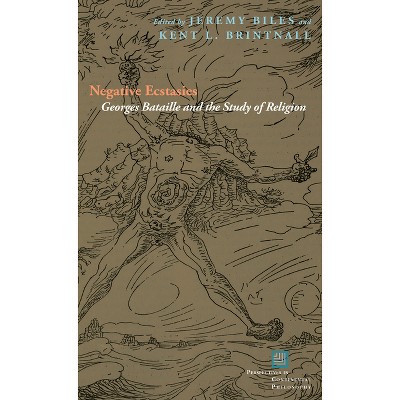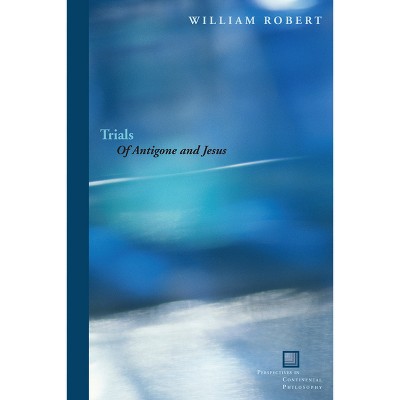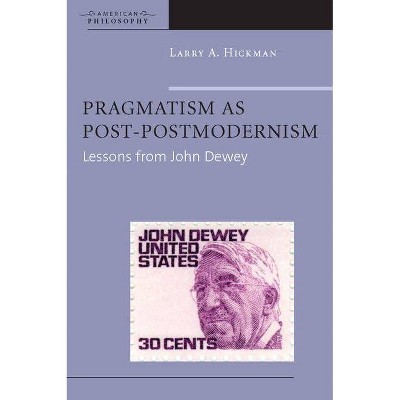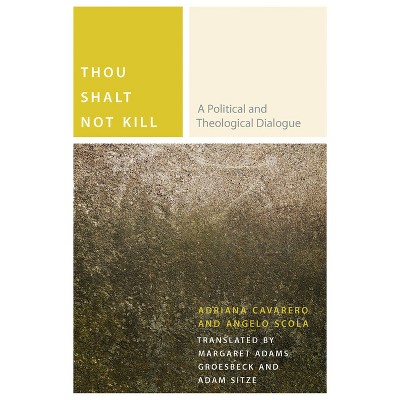$94.00 when purchased online
Target Online store #3991
About this item
Highlights
- In the 1930s, Georges Bataille proclaimed a "ferociously religious" sensibility characterized by simultaneous ecstasy and horror.
- About the Author: JEREMY BILES is an Instructor at the University of Chicago, and the managing editor of Sightings.
- 372 Pages
- Religion + Beliefs, Philosophy
Description
About the Book
In the 1930s, Georges Bataille proclaimed a ferociously religioussensibility characterized by simultaneous ecstasy and horror. Ecce Monstrum investigates this religious sensibility by examining Bataille's insistent linking of monstrosity and the sacred.Bataille enacts a monstrousmode of reading and writing in his approaches to other thinkers and artists-a mode at once agonistic and intimate. Ecce Monstrum examines this mode through investigations of Bataille's sacrificialinterpretations of Kojve's Hegel and Friedrich Nietzsche; his contentious relationship with Simone Weil and its implications for his mystical and writing practices; his fraught affiliation with surrealist Andr Breton and his attempt to displace surrealism with hyperchristianity; and his peculiar relations to artist Hans Bellmer, whose work evokes Bataille's religious sensibilityBook Synopsis
In the 1930s, Georges Bataille proclaimed a "ferociously religious" sensibility characterized by simultaneous ecstasy and horror. Ecce Monstrum investigates the content and implications of this religious sensibility by examining Bataille's insistent linking of monstrosity and the sacred.
Extending and sometimes challenging major interpretations of Bataille by thinkers like Denis Hollier and Rosalind Krauss the book reveals how his writings betray the monstrous marks of the affective and intellectual contradictions he seeks to produce in his readers. Charting a new approach to recent debates concerning Bataille's formulation of the informe ("formless"), the author demonstrates that the motif of monstrosity is keyed to Bataille's notion of sacrifice--an operation that ruptures the integrality of the individual form. Bataille enacts a "monstrous" mode of reading and writing in his approaches to other thinkers and artists--a mode that is at once agonistic and intimate. Ecce Monstrum examines this monstrous mode of reading and writing through investigations of Bataille's "sacrificial" interpretations of Kojève's Hegel and Friedrich Nietzsche; his contentious relationship with Simone Weil and its implications for his mystical and writing practices; his fraught affiliation with surrealist André Breton and his attempt to displace surrealism with "hyperchristianity"; and his peculiar relations to artist Hans Bellmer, whose work evokes Bataille's "religious sensibility." With its wide-ranging analyses, this book offers insights of interest to scholars of religion, philosophers, art historians, and students of French intellectual history and early modernism.Review Quotes
All in all, among recent studies on Bataille, Biles's book is the one that perhaps approaches best Bataille's thought while proposing new interpretations of his work.-- "--H-Net Reviews"
Biles demonstrates an excellent grasp of the critical commentary on, and the cultural context of Georges Bataille. The stakes of Bataille's work in the areas of intellectual history, literary history, and modern, and postmodern, art are clearly explored. Wonderfully informative and stimulating.-----Allan Stoekl, Pennsylvania State University
In this superb study of Bataille, Jeremy Biles navigates between Bataille's fascination with the horrible and the monstrous on the one hand, and his insistence on the possibility of the sacred in the modern world on the other. With erudition and level-headed admiration, Biles shows how Bataille's work is a meditation, willfully combining horror and ecstasy, joy in the face of death, and sacrifice as a necessary antidote to form. Biles reads Bataille on four principle thinkers: Hegel, Nietzsche, Simone Weil, and André Breton.The reader emerges from this study understanding, not only the importance to modernity of Bataille himself, but also the extent to which Bataille's project provides a certain modernist trajectory the ramifications of which are increasingly clear today.-----Francoise Meltzer, University of Chicago
One is struck by Biles's erudition: not only has he read, with patience and great sensitivity, the entirety of Bataille's writings along with his principal commentators, but he writes insightfully also about the works of the many figures (Hegel, Nietzsche, Simone Weil, André Breton) in relation to whom he situates Bataille.-----Peter Tracey Connor, Barnard College
About the Author
JEREMY BILES is an Instructor at the University of Chicago, and the managing editor of Sightings.Dimensions (Overall): 9.01 Inches (H) x 6.58 Inches (W) x .89 Inches (D)
Weight: 1.24 Pounds
Suggested Age: 22 Years and Up
Number of Pages: 372
Genre: Religion + Beliefs
Sub-Genre: Philosophy
Publisher: Fordham University Press
Format: Hardcover
Author: Jeremy Biles
Language: English
Street Date: December 15, 2007
TCIN: 94258059
UPC: 9780823227785
Item Number (DPCI): 247-11-0288
Origin: Made in the USA or Imported
Shipping details
Estimated ship dimensions: 0.89 inches length x 6.58 inches width x 9.01 inches height
Estimated ship weight: 1.24 pounds
We regret that this item cannot be shipped to PO Boxes.
This item cannot be shipped to the following locations: American Samoa (see also separate entry under AS), Guam (see also separate entry under GU), Northern Mariana Islands, Puerto Rico (see also separate entry under PR), United States Minor Outlying Islands, Virgin Islands, U.S., APO/FPO
Return details
This item can be returned to any Target store or Target.com.
This item must be returned within 90 days of the date it was purchased in store, shipped, delivered by a Shipt shopper, or made ready for pickup.
See the return policy for complete information.












